“Greece or Portugal?” - a seemingly simple question that stumped Laura Houldsworth, Asia- Pacific Managing Director of Booking.com, for weeks as she planned her summer vacation.
"ChatGPT, Google, chatbots... I tried them all. The results were too many. I couldn't decide which was the most suitable choice. Finally, I had to call my friend - a travel agent who lived in Greece for 20 years - for specific advice, and I chose... Portugal!", she said at the APAC Trust Summit 2025 conference organized by Booking.com in Singapore on July 24.
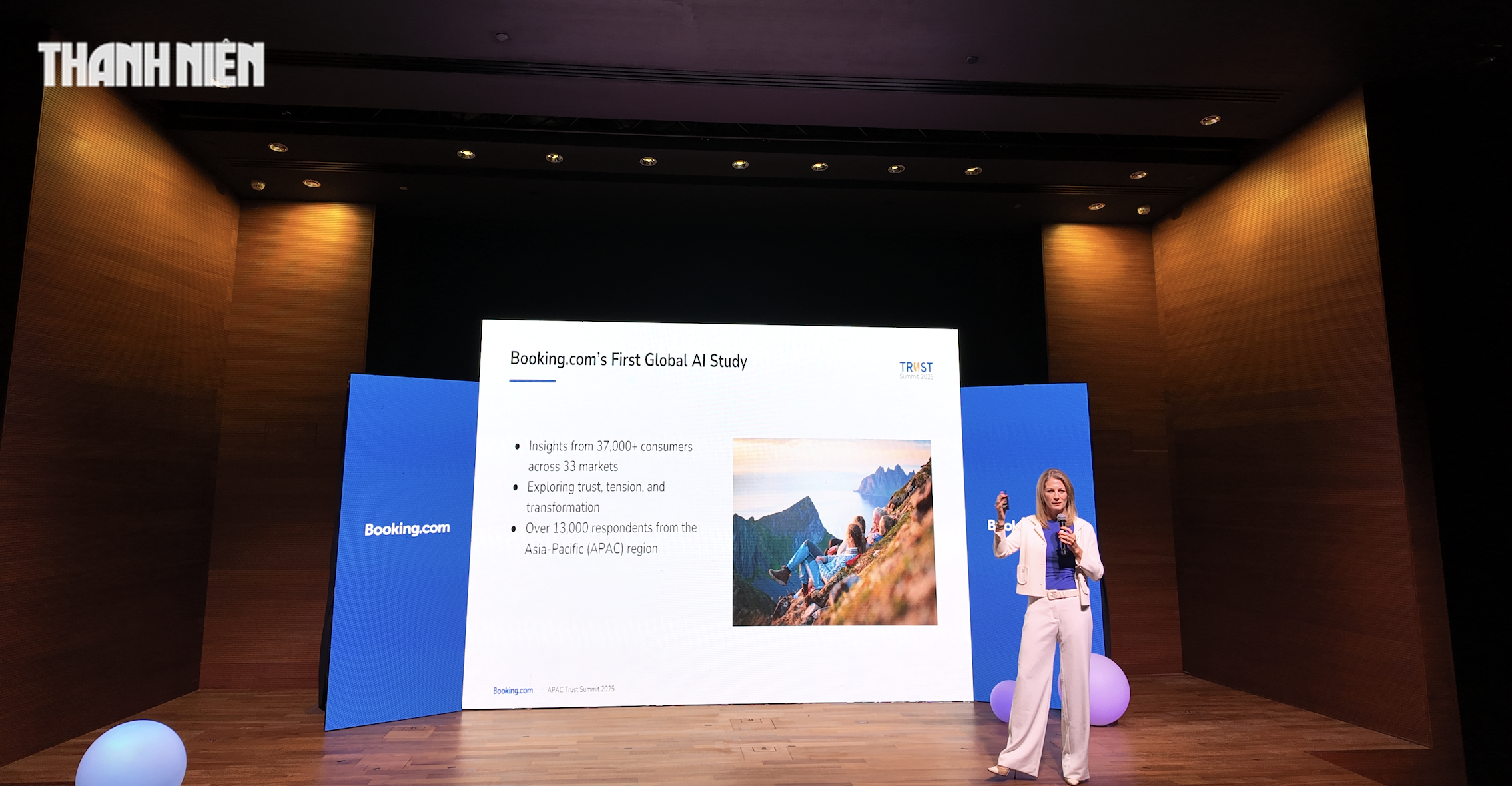
Booking.com's Asia Pacific CEO speaks about AI-powered travel at APAC Trust Summit 2025
PHOTO: LE NAM
When AI becomes a personal "travel agent"
AI is quietly changing the way we plan and enjoy our trips. According to a global report released by Booking.com, 91% of users are excited about AI in travel. But conversely, only 6% have complete trust in the information AI provides.
“Travel is back, but it’s back in a different form,” Laura said. “Travelers’ expectations are higher, information overload is more prevalent, and search behavior is more complex and deeply personalized.”
Also in the report, 77% of respondents believe that AI-powered travel agents will become mainstream within the next three years. Young people no longer ask friends and colleagues where to go, they type into ChatGPT, Gemini, or any virtual assistant: "Where should I go in September to avoid crowds and respect sustainability?".
At the conference, Thanh Nien Newspaper's reporter, representing the Vietnamese press, asked Ms. Laura directly about the timing of deploying AI Trip Planner in Vietnam.
“We don’t rush into launching a product that isn’t ready,” she said. “In markets like Vietnam, where users are very active and have a high spirit of discovery, we take extra care to make sure that when we launch, the tool is truly useful and trustworthy.”
The AI Trip Planner feature is currently available in English-speaking countries, and will expand to include a "trip companion," an AI-powered travel companion that does more than just plan your itinerary.
Reality in Singapore, where the conference took place, shows that the trend of AI tourism is becoming more and more popular, especially with Vietnamese tourists.
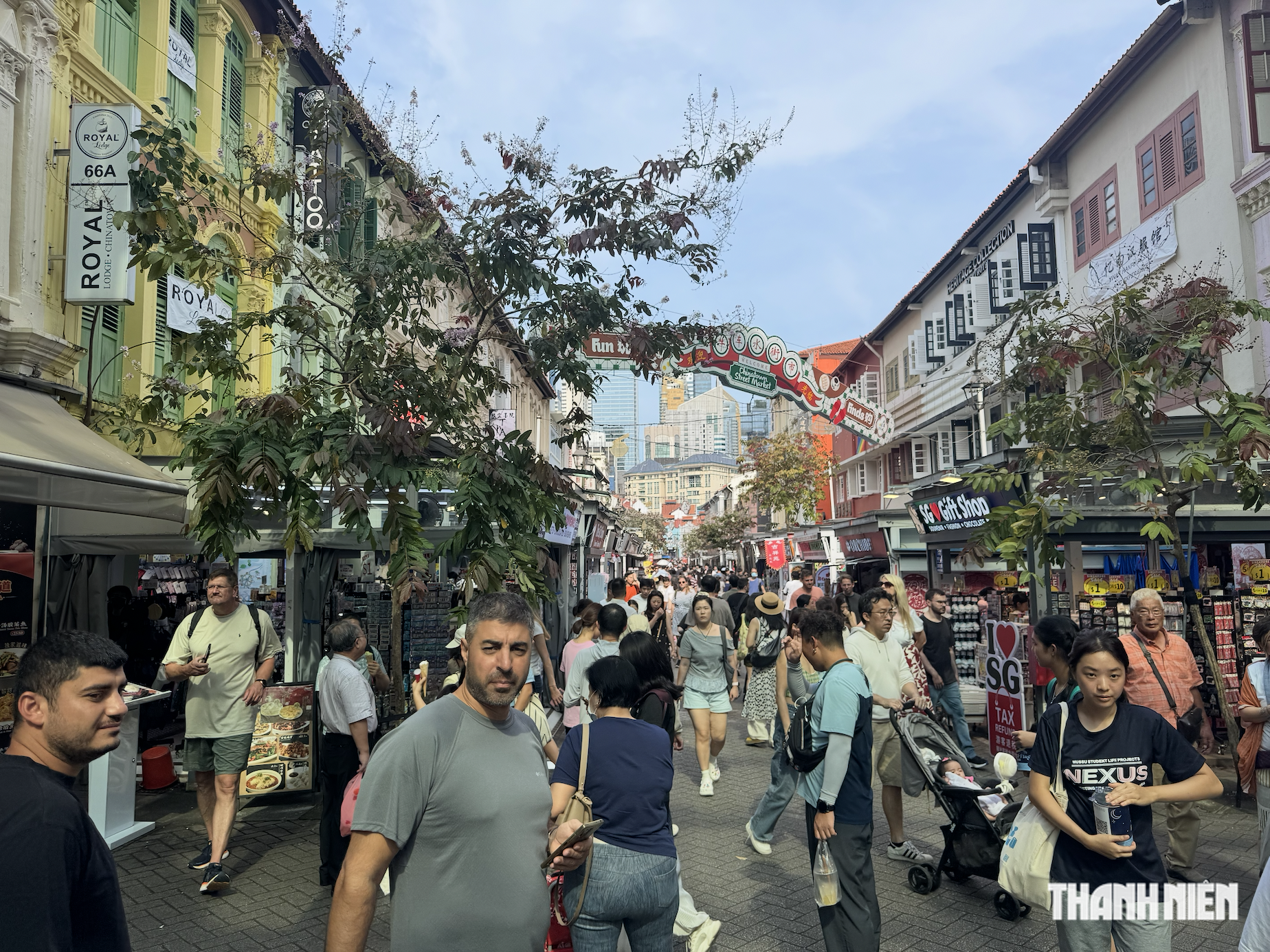
Chinatown in Singapore is crowded with tourists on weekends.
PHOTO: LE NAM
Searching for tourist attractions, cultural history, restaurants that suit your taste... now only takes a few seconds through AI tools, instead of browsing through a series of blogs and review groups like before. Convenience and immediacy are making artificial intelligence an indispensable "assistant" for those who love to travel.
Is travel blogger being "dethroned"?
In Vietnam, it is not difficult to see many young people planning their trips by... asking TikTok, Google, or "chatting with AI" to create a schedule. However, each journey is still associated with personal emotions and human factors, which AI cannot completely replace.
Will travel bloggers - who used to be the "travel guide" - be pushed out of the game by AI? Ms. Laura thinks that... not entirely.
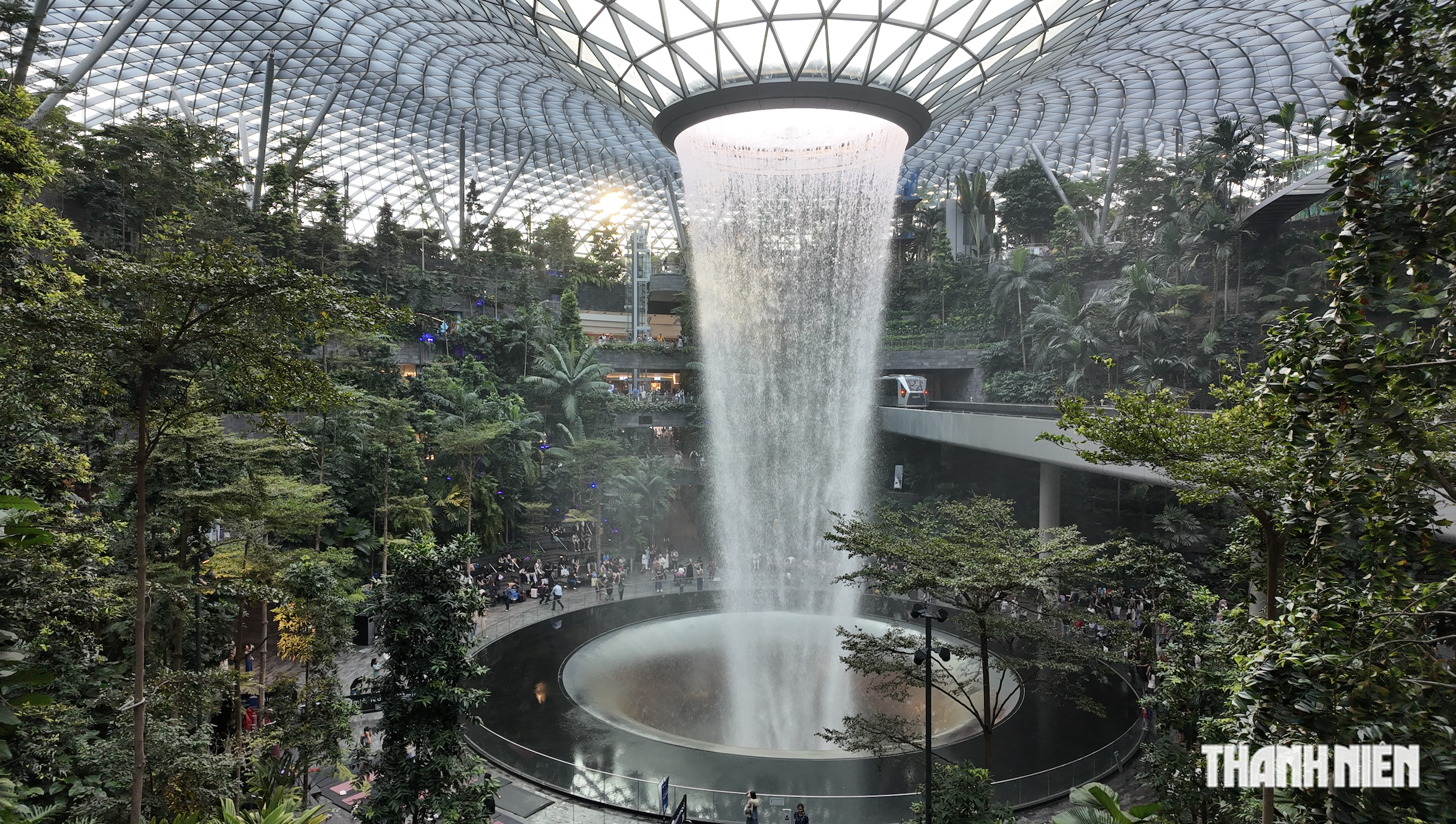
Waterfall in Changi Airport
PHOTO: LE NAM
In a separate interview with Thanh Nien Newspaper, Ms. Laura shared: "We see that users are not just looking for hotels or destinations. They want an experience that matches their living values: avoiding crowds, sustainable travel, and being environmentally friendly. This is when AI combines with human emotions to make truly effective suggestions."
"In the past, hotels used to describe things like: 27 rooms, 3 restaurants, swimming pool. But now, people want to know what the place smells like, how it feels when you walk in, what's special about the surroundings. These things often come from real reviews, not just dry data," she analyzed.
The more emotional information, the more accurate the AI's suggestions. And this is also where travel bloggers can exploit more deeply, with real-life experience and in-depth storytelling ability.

Travel is entering a new era - where AI is the tool, data is the fuel, trust is the most valuable asset
PHOTO: LE NAM
Travel bloggers are not going away, but they have to change. They are no longer the ones checking in first so that you can take pictures later, but the ones telling stories, inspiring and creating human values in the digital world.
“Travel is a human experience,” Laura asserts. “Technology gets us there, but it’s people that make us want to come back.”
Source: https://thanhnien.vn/du-lich-thoi-ai-cac-travel-blogger-co-nguy-co-bi-loai-khoi-cuoc-choi-185250728085946159.htm


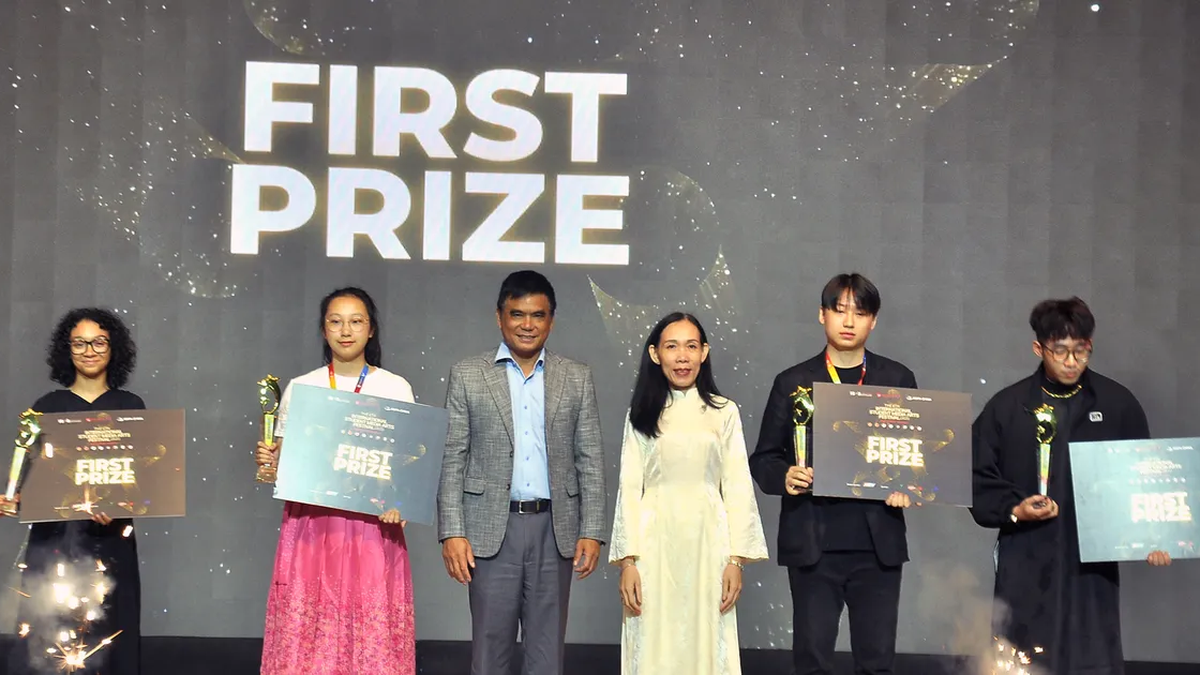
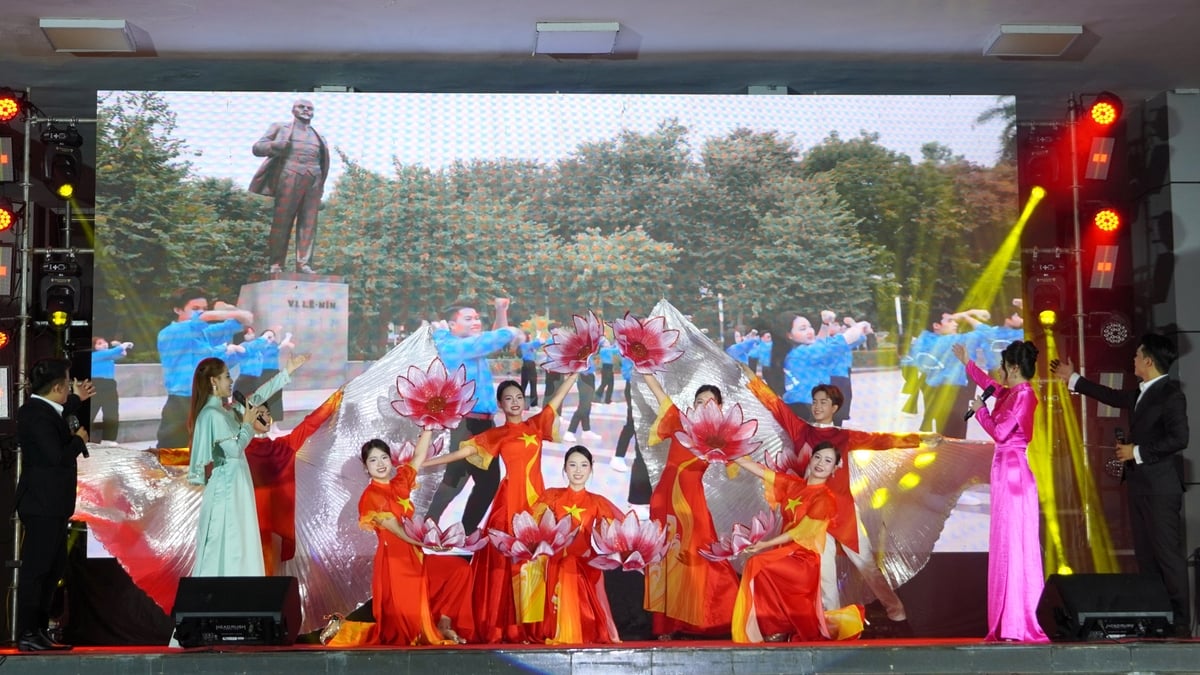



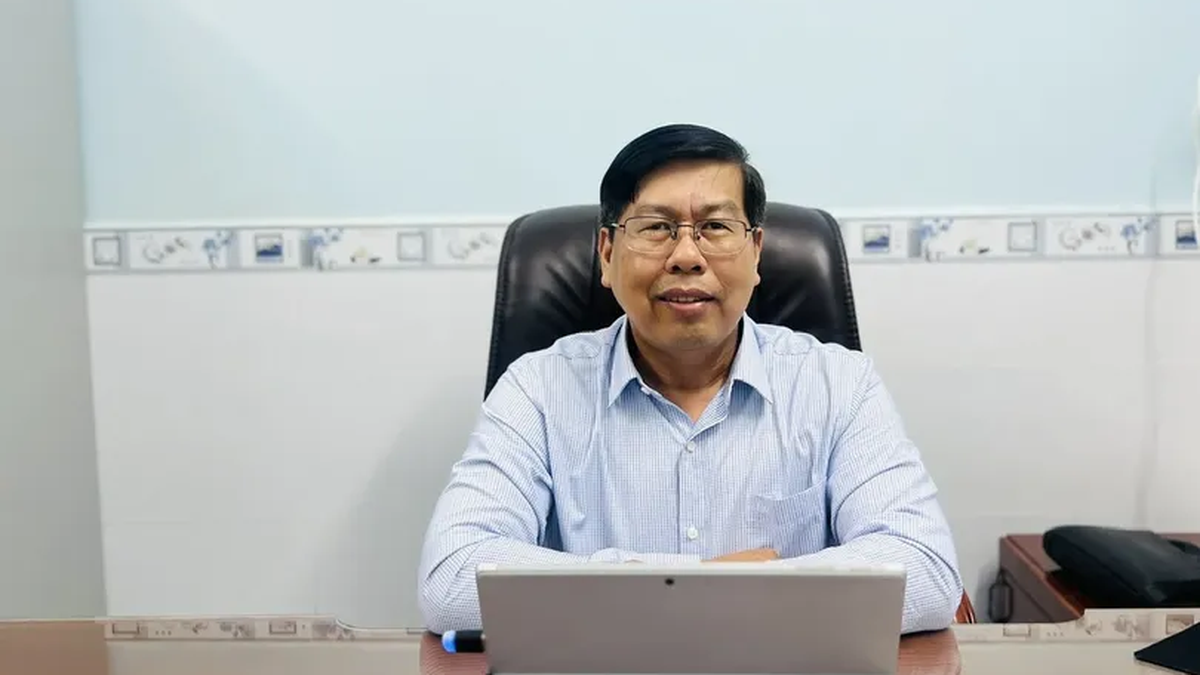



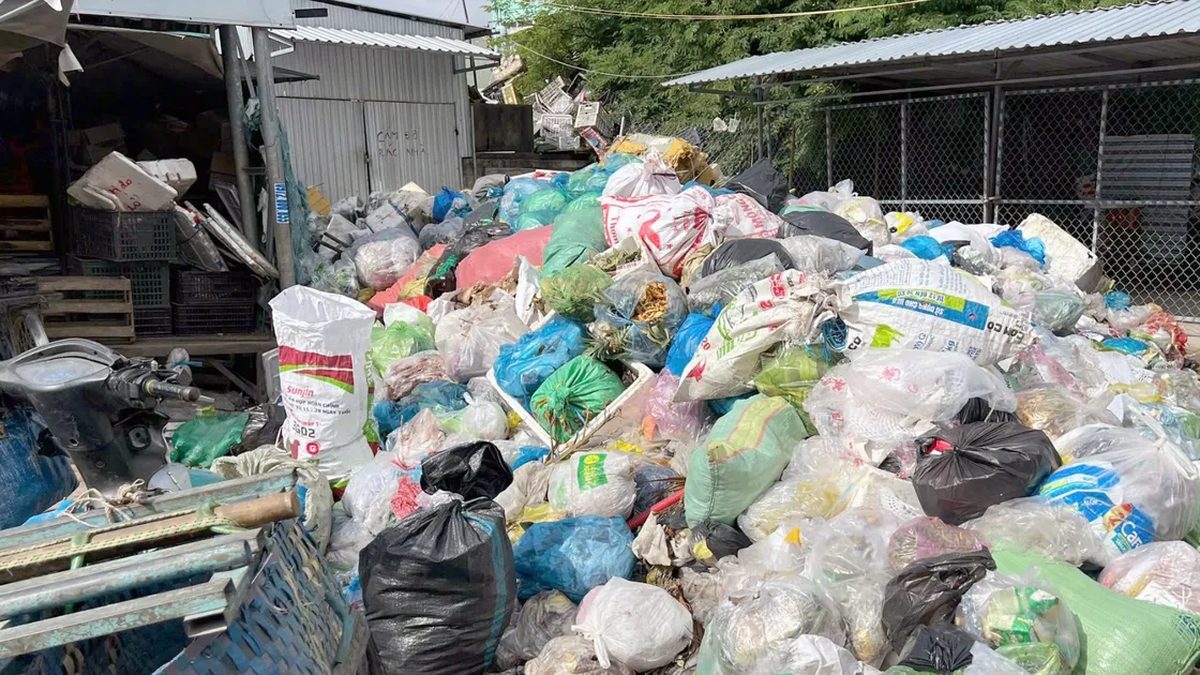












![[Photo] National Assembly Chairman attends the seminar "Building and operating an international financial center and recommendations for Vietnam"](https://vphoto.vietnam.vn/thumb/1200x675/vietnam/resource/IMAGE/2025/7/28/76393436936e457db31ec84433289f72)




































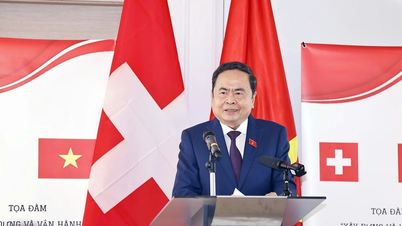




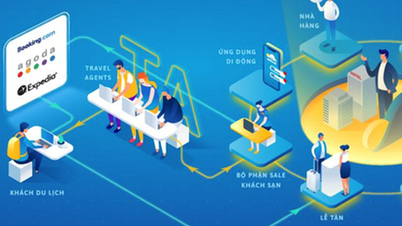

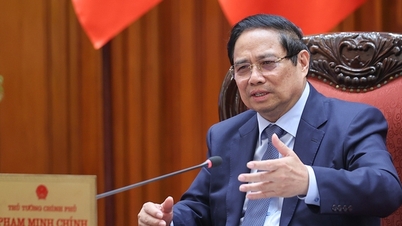


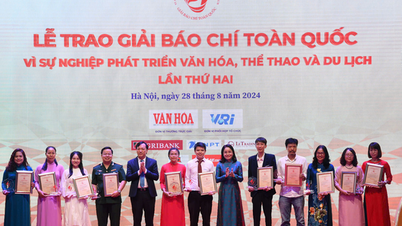
























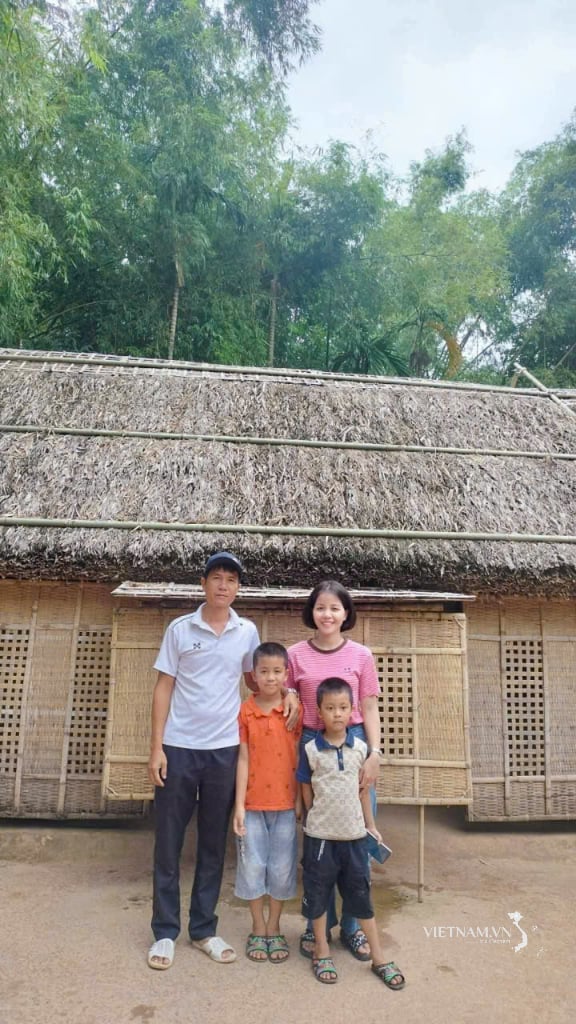
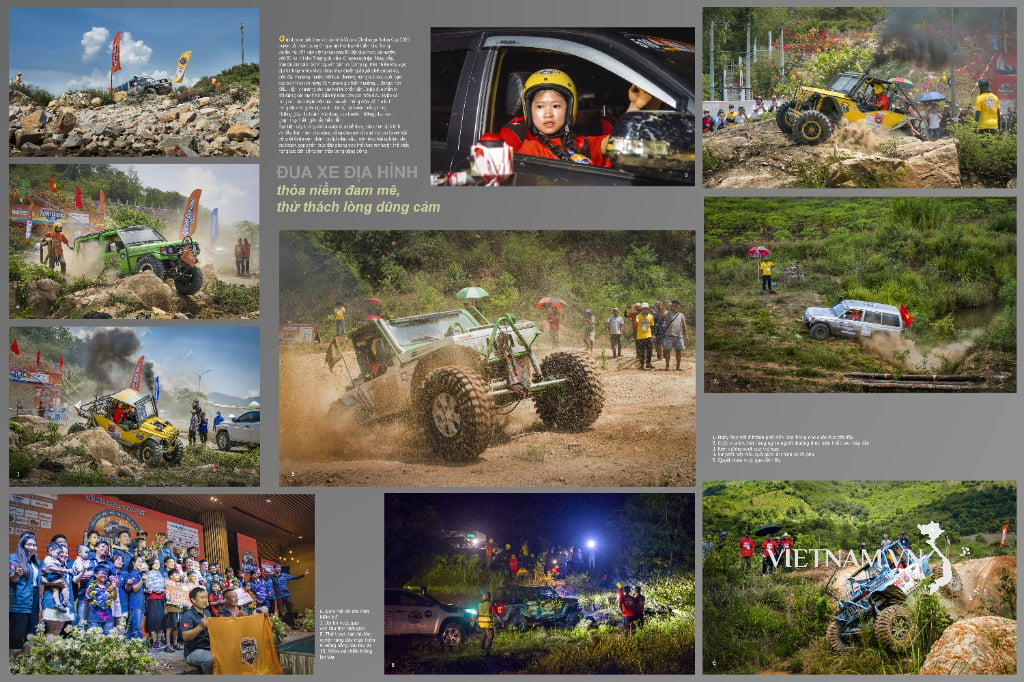
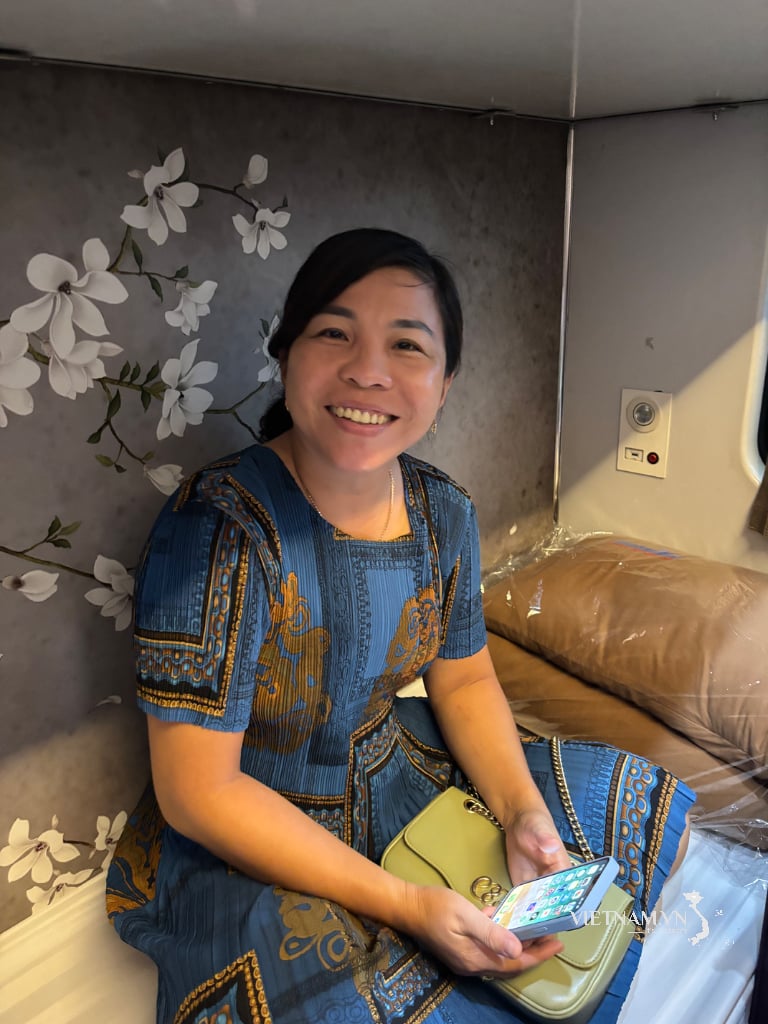
Comment (0)